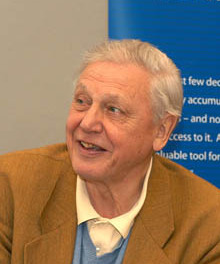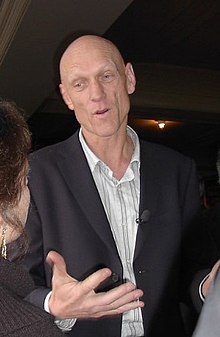Loading AI tools
Someone who supports the goals of the environmental movement From Wikipedia, the free encyclopedia
An environmentalist is a person who is concerned with and/or advocates for the protection of the environment. An environmentalist can be considered a supporter of the goals of the environmental movement, "a political and ethical movement that seeks to improve and protect the quality of the natural environment through changes to environmentally harmful human activities".[1] An environmentalist is engaged in or believes in the philosophy of environmentalism or one of the related philosophies.


The environmental movement has a number of subcommunities, with different approaches and focuses – each developing distinct movements and identities. Environmentalists are sometimes referred to by critics with informal or derogatory terms such as "greenie" and "tree-hugger",[2] with some members of the public associating the most radical environmentalists with these derogatory terms.[3]
The environmental movement contains a number of subcommunities, that have developed with different approaches and philosophies in different parts of the world. Notably, the early environmental movement experienced a deep tension between the philosophies of conservation and broader environmental protection.[3] In recent decades the rise to prominence of environmental justice, indigenous rights and key environmental crises like the climate crises, has led to the development of other environmentalist identities. Environmentalists can be describe as one of the following:
The public recognition of the climate crisis and emergence of the climate movement in the beginning of the 21st century led to a distinct group of activists. Activations like the School Strike for Climate and Fridays for Future, have led to a new generation of youth activists like Greta Thunberg, Jamie Margolin and Vanessa Nakate who have created a global youth climate movement.[4][5]
One notable strain of environmentalism, comes from the philosophy of the conservation movement. Conservationists are concerned with leaving the environment in a better state than the condition they found it distinct from human interaction.[6][7] The conservation movement is associated with the early parts of the environmental movement of the 19th and 20th century.[8]
Environmental defenders or environmental human rights defenders are individuals or collectives who protect the environment from harms resulting from resource extraction, hazardous waste disposal, infrastructure projects, land appropriation, or other dangers. In 2019, the UN Human Rights Council unanimously recognised their importance to environmental protection.[9] The term environmental defender is broadly applied to a diverse range of environmental groups and leaders from different cultures that all employ different tactics and hold different agendas. Use of the term is contested, as it homogenizes such a wide range of groups and campaigns, many of whom do not self-identify with the term and may not have explicit aims to protect the environment (being motivated primarily by social justice concerns).[10]
Environmental defenders involved in environmental conflicts face a wide range of threats from governments, local elites, and other powers that benefit from projects that defenders oppose. Global Witness reported 1,922 murders of environmental defenders in 57 countries between 2002 and 2019, with indigenous people accounting for approximately one third of this total. Documentation of this violence is incomplete. The UN Special Rapporteur on human rights reported that as many as one hundred environmental defenders are intimidated, arrested or otherwise harassed for every one that is killed.[11]The adoption of environmentalist into a distinct political ideology led to the development of political parties called "green parties", typically with a leftist political approach to overlapping issues of environmental and social wellbeing.


Water protectors are activists, organizers, and cultural workers focused on the defense of the world's water and water systems. The water protector name, analysis and style of activism arose from Indigenous communities in North America during the Dakota Access Pipeline protests at the Standing Rock Reservation, which began with an encampment on LaDonna Brave Bull Allard's land in April, 2016.[12][13]
Water protectors are similar to land defenders, but are distinguished from other environmental activists by this philosophy and approach that is rooted in an indigenous cultural perspective that sees water and the land as sacred.[14][15] This relationship with water moves beyond simply having access to clean drinking water, and comes from the beliefs that water is necessary for life and that water is a relative and therefore it must be treated with respect.[16] As such, the reasons for protection of water are older, more holistic, and integrated into a larger cultural and spiritual whole than in most modern forms of environmental activism, which may be more based in seeing water and other extractive resources as commodities.[17][18]
Historically, water protectors have been led by or composed of women;[19] in this way, it is comparable to the ecofeminist movement.[20]








Some of the notable environmentalists who have been active in lobbying for environmental protection and conservation include:
In recent years, there are not only environmentalists for natural environment but also environmentalists for human environment. For instance, the activists who call for "mental green space" by getting rid of disadvantages of internet, cable TV, and smartphones have been called "info-environmentalists".[23]

Seamless Wikipedia browsing. On steroids.
Every time you click a link to Wikipedia, Wiktionary or Wikiquote in your browser's search results, it will show the modern Wikiwand interface.
Wikiwand extension is a five stars, simple, with minimum permission required to keep your browsing private, safe and transparent.